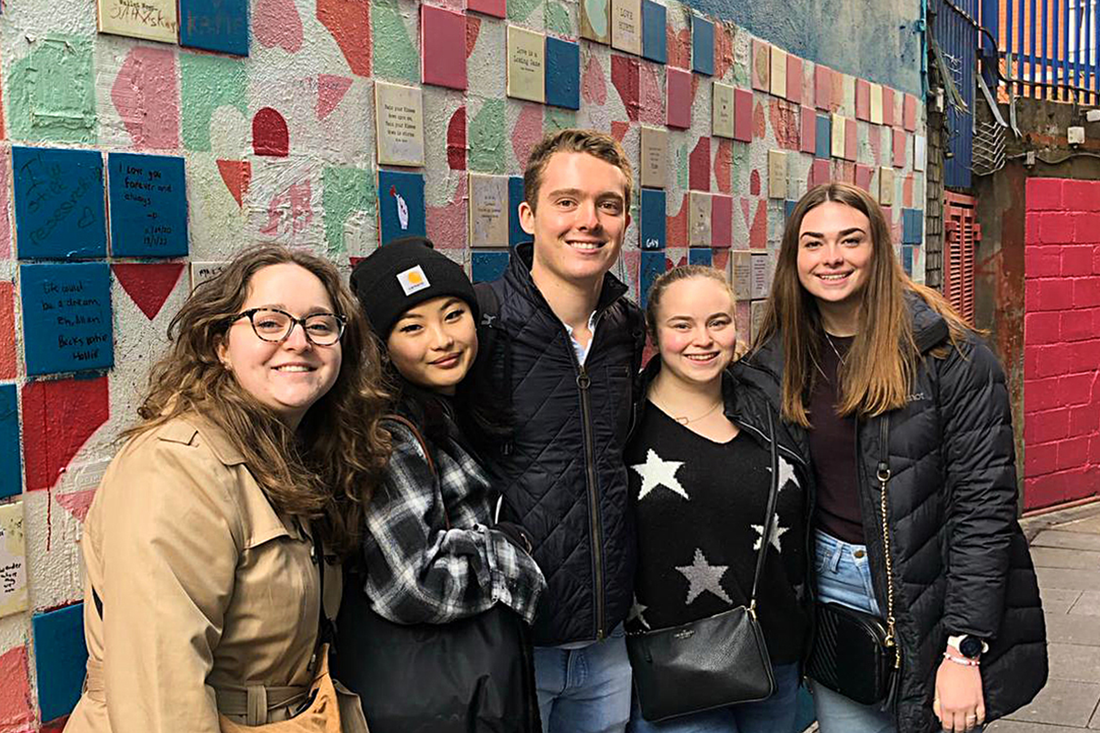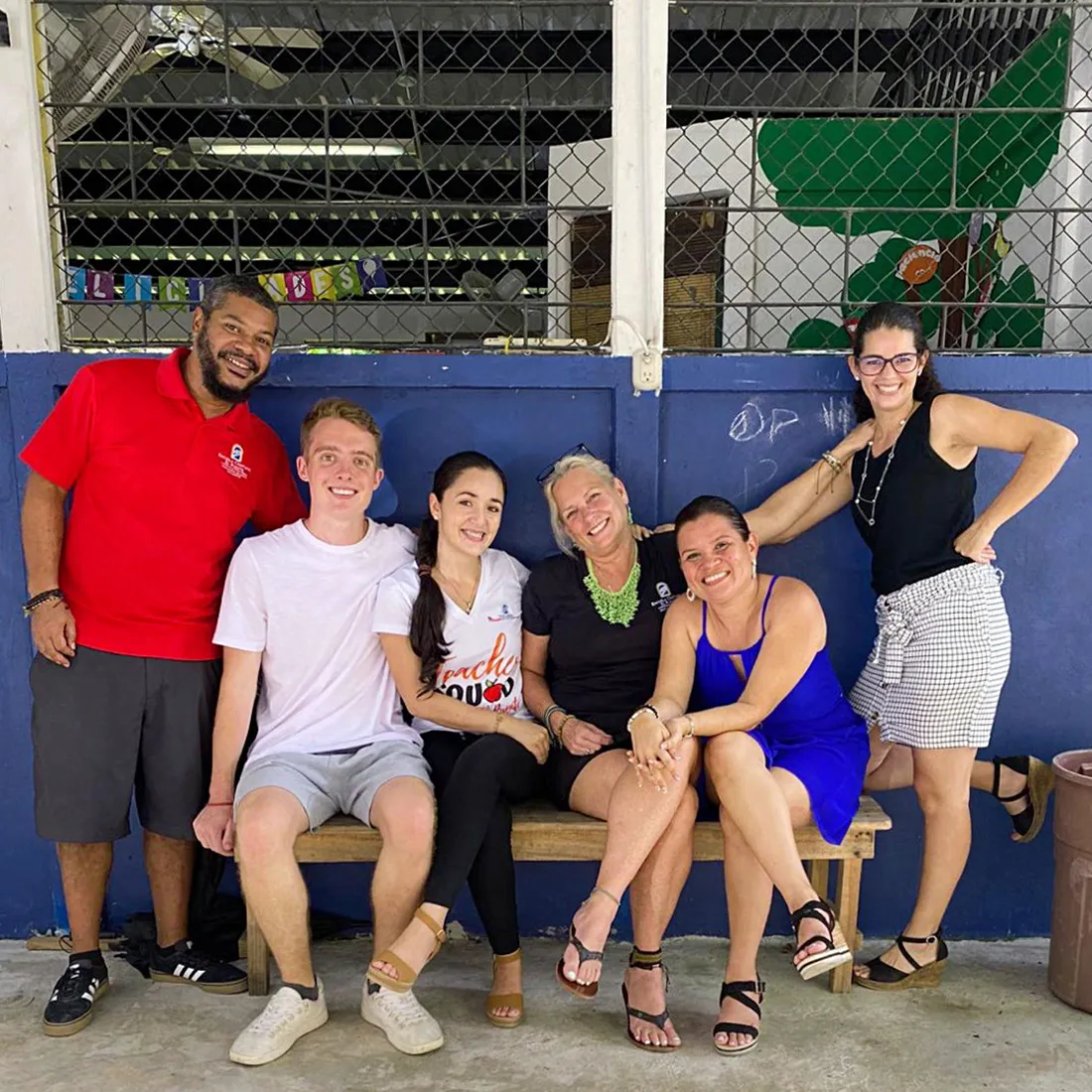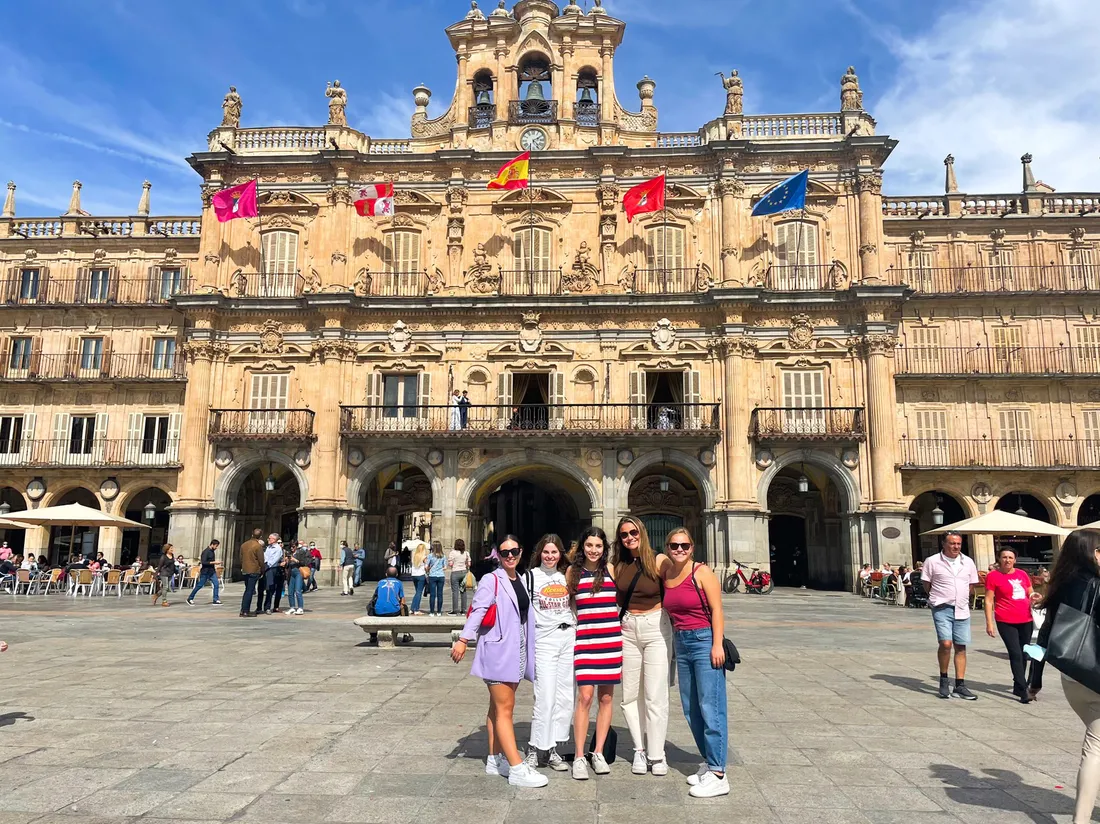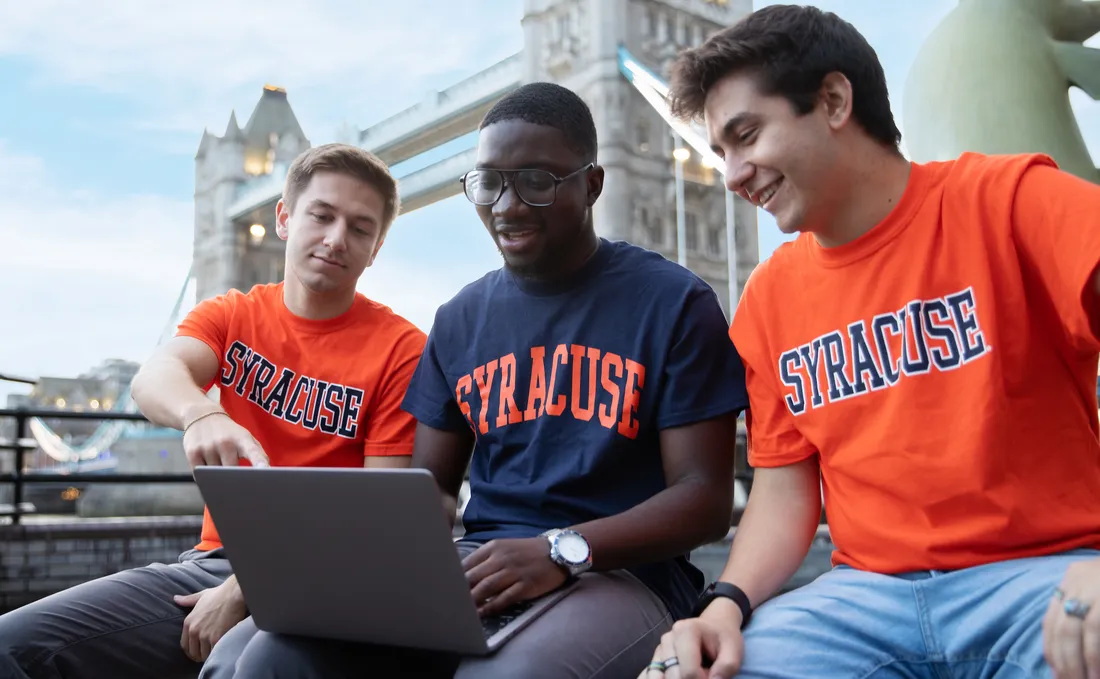
Honors student Declan Havlicek ’22 examines Dublin street art as part of Borders in Flux, a traveling seminar offered by Syracuse London.
Last fall, Declan Havlicek ’22 embarked on the unfamiliar—in-person learning. Only he was 3,600 miles from home. Based at Syracuse Madrid, the affable Boston native was part of a growing number of Syracuse University students turning to alternative models of learning, like study abroad, amid the pandemic.
“It’s not how I originally envisioned college, but what I’ve done has exceeded my expectations,” says the senior majoring in economics in the Maxwell School of Citizenship and Public Affairs and the College of Arts and Sciences. “Syracuse University has made me more flexible and resilient. It’s also taught me how to take responsibility for my learning.”
There are nontraditional students, and then there’s Havlicek, who graduates in May—summa cum laude, if all goes to plan—after three years of college. No matter that he has logged only two semesters in Syracuse. Since the onset of COVID, the world has been his classroom.
Teaching, traveling and studying abroad fuel my curiosity. They help me understand the connection between perspective and purpose. It’s work that I take personally.
Declan Havlicek ’22
Havlicek currently works out of the Syracuse London center in Bloomsbury, a leafy neighborhood brimming with parks, theaters and museums. His schedule includes upper-level courses in health psychology, creative industry and the business of tourism. “I love London. Some of these classes you can’t take anywhere else,” he says, noting a preponderance of guest speakers and site visits.
An American with dual Irish citizenship, Havlicek welcomed spring semester with a traveling seminar in Ireland. The course included a nine-day tour, where he got an up-close look at Irish culture and history. Havlicek’s visit to Derry/Londonderry coincided with the 50th anniversary of Bloody Sunday, in which British soldiers opened fire on civil rights protestors. The event, he explains, became a turning point in the decades-long feud between Catholic nationalists and Protestant loyalists.
It was while gazing at the Bloody Sunday memorial—a simple granite obelisk—that Havlicek was drawn to a list of names. “See that one at the bottom?” the tour guide asked him. “That’s my dad. He died here on Bloody Sunday.”
The experience was a potent reminder that learning is more than memorizing facts, dates and events. “Putting a face to a name makes history come alive,” Havlicek says. “It personalizes it for me.”
I want to help young people find jobs or create entrepreneurial opportunities, which can lead to social well-being and political stability.
Declan Havlicek ’22
Blending Preparation and Opportunity
Gaining a global perspective should stand Havlicek in good stead. After graduate school, he wants to embark on a career in international youth development. Such work generally occurs in developing countries where youth populations expect to double by 2050.

Havlicek, second from left, at a bilingual school in Costa Rica, where he taught after the outbreak of COVID-19.
One of the most important perspectives that Havlicek has gained from Syracuse is the link between economic growth and poverty reduction. “I want to help young people find jobs or create entrepreneurial opportunities, which can lead to social well-being and political stability,” he says. “Otherwise, they wind up in an endless cycle of poverty and inequality that has global repercussions.”
Havlicek’s interest in youth development began in high school, where he excelled in sports and academics. Involvement with Model UN, Mock Trial, the debate club and the Global Scholars Program revealed a flair for real-world, hands-on learning.
A turning point was hearing a lecture by a former investment banker who founded a secondary school in Somaliland. “I couldn’t believe that his students, who were from a breakaway region of Somalia, were getting into elite American universities,” says Havlicek, a member of the Phi Beta Kappa and Omicron Delta Epsilon honor societies for liberal arts and economics, respectively. “I was reminded of the adage of success happening when preparation meets opportunity. Everyone deserves a chance at education.”
Embracing Global Issues
After high school, Havlicek enrolled in a gap year program, where he taught English in Spain and Thailand. “The experience really stretched me,” says Havlicek, who subsequently earned a Teaching English as a Foreign Language Certificate. He also conducted research in Madagascar, ran a drama workshop in Milan and staffed a soccer camp in London—all before his 19th birthday.
Syracuse University has made me more flexible and resilient. It’s also taught me how to take responsibility for my learning.
Declan Havlicek ’22
At Syracuse, Havlicek wanted to put down roots. That changed six months later, with the onset of the pandemic. “COVID-19 took everyone by surprise,” says Havlicek, who found his way to Costa Rica, where he taught English, math and science. Working with students from all over the world helped him see the pandemic in a new light.
It also laid bare the difficulties of STEM teaching and learning. “Americans aren’t the only ones struggling with STEM. Every time I’d ask students to take out their math or science books, they’d just roll their eyes,” he remembers. “I saw an opportunity to approach these subjects differently.”
A Passion for Learning
For all his globe-trotting, Havlicek’s legacy looms large at Syracuse. One of his mentors is Ali Cridge in the Renée Crown University Honors Program. She says that Havlicek’s Honors Thesis Project, which addresses the Chelsea Football Club’s long-term stability and financial health, brings out his “natural curiosity and passion for learning as a catalyst to action.”
The project has taken on a sense of urgency with the Russia-Ukraine war, forcing Chelsea’s owner—who has ties to Moscow—to sell the venerable club. Complicating matters is Chelsea’s propensity for winning matches while losing money. “Potential buyers won’t want to continue this persistent loss, but I think it’s possible to be profitable and successful under a new owner,” says Havlicek, who has participated in the Sport Management Club in the David B. Falk College of Sport and Human Dynamics.
Havlicek proposes heavy youth investment, shrewd spending and player appreciation through a loan transfer system. (European footballers are famous for being loaned to clubs other than the ones to which they’re currently contracted.) “This way, Chelsea can satisfy football fans and the businesspeople who run the club.”
Even though graduation is around the bend, Havlicek’s academic journey is far from over. In some respects, it’s just beginning. “Teaching, traveling and studying abroad fuel my curiosity,” says the 2022 semi-finalist for the Fulbright Scholar Program. “They help me understand the connection between perspective and purpose. It’s work that I take personally.”


